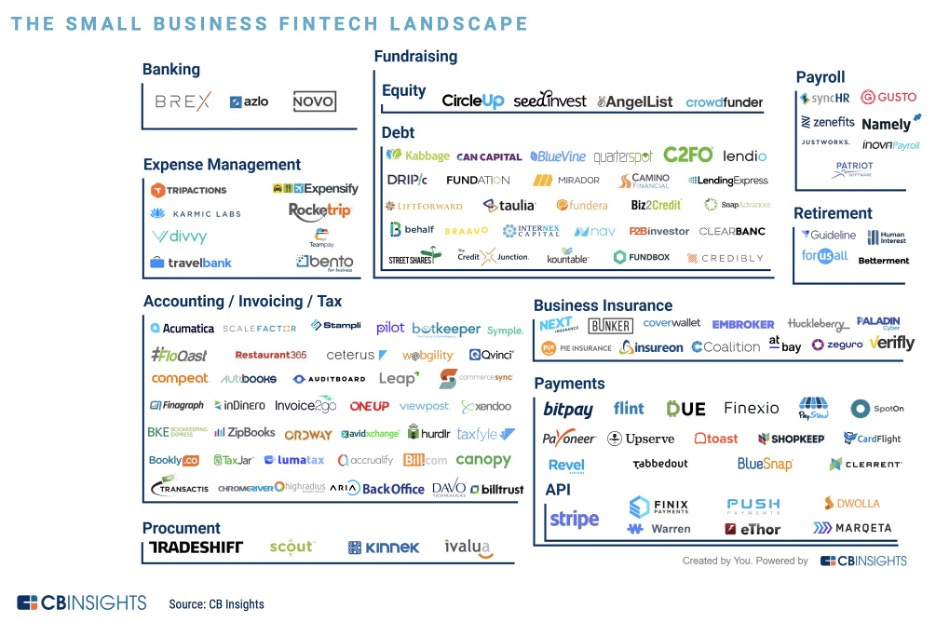The power in powering small businesses
And celebrating ZenBusiness' $200m Series C round

In honor of ZenBusiness’ $200m Series C led by Oak HC/FT and Softbank, I wanted to re-share this piece on the importance of SMBs to the U.S. economy, originally from my Forbes column here. We led the Series B of ZenBusiness last November.
There are 30M Small and Medium Sized Businesses (“SMB”) in the US, accounting for 99% of US businesses, and growing. Covid-19 has shown us two simultaneous and seemingly opposite truths about this segment.
1. SMBs are fragile — massive external shocks can cause devastating effects.
2. SMBs as a sector are the future — they have proven to be one of the most resilient aspects of our economy.
While the pandemic has certainly been one of the most challenging times for SMBs, a recent survey from Facebook, the World Bank and the OECD show that most (57%) remain optimistic and resilient when it comes to the the future of their businesses with only 10% expecting to close should current conditions persist.
The growth in SMBs across the country in the last year has been unexpected and is bringing significant benefits. But to support them, innovation needs some new tools.
Let’s start with the importance of the sector.
SMBs are critical to the US economy.
Entrepreneurship and small business creation is the bedrock of the United States economy, with new small businesses responsible for all net new job creation in this country — a vital component that has proved more resilient in recessions and as we continue to navigate the COVID-19 crisis.
While many small and medium sized businesses stay small, some do experience significant scale — companies that were once small businesses or startups, are responsible for over 40% of the US public traded companies, 60% of market cap and remarkably 80% of R&D.
During the pandemic, while hundreds of thousands of SMBs were going bankrupt, hundreds of thousands of new businesses were being formed at the same time. Data from the Census shows that entrepreneurs applied for 4.3M new Employer Identification Numbers (how the IRS identifies a new business entity) in 2020, that’s 24% growth since 2019.
What SMBs look like is shifting for the better.
SMBs are not only a tool to create resilience, but the small businesses of today are pointing to a more inclusive future.
According to data from ZenBusiness (a all-in-one SMB enablement platform and portfolio company of my firm), 39% of the new businesses founded over the past year were women-owned as opposed to 30% the year before, highlighting a jump in women entrepreneurs during the pandemic. They also defy age stereotypes. Despite common perceptions of new business creation strictly coming from younger generations, entrepreneurs over the age of 65 saw the biggest jump in growth – 180%.
SMB and startup creation is also showing that innovation is moving outside traditional sectors and scaling globally. Today, there are over 480 startup ecosystems around the world. 85 startup ecosystems have created a unicorn. This is up from 4 in 2013. Startup hubs are not just scaling in different places, they are building different types of startups. In Silicon Valley, less than 20% of unicorns are in critical sectors like financial services, healthcare, education and agriculture. In many emerging ecosystems the ratios are flipped. For example, in Sub Saharan Africa it is over 60%!
The shift towards SMBs will be further accelerated by demographic shifts. According to research by GoDaddy GDDY +0.3%, a third of millennials have a small business or side hustle (20% of which it is their main income). Crucially, over 80% believe they would be more satisfied working as an entrepreneur than for someone else.
To power this shift requires innovation.
It goes without saying, but starting and running a new business is extremely challenging. ZenBusiness research highlights some of the top needs reported by SMBs with over 50% indicating that they would like more support on core functions including expense tracking, website development and social marketing. Even more foundational support is needed too with 75% saying that they would like more tactical and educational content.
Fortunately, there is a Cambrian explosion of software looking to capitalize on these trends and address the emerging needs of new and existing SMBs and startups - see a sample in the market map below.
These tools span the gamut. Some platforms offer all in a single platform to manage an ecommerce or microbusiness respectively. Others are targeting specific painpoints to manage and grow the business, including expense management, financing, insurance and payments. What’s more, there’s a wide range of broader enablement software being built, making it easier than ever to start a new business and benefit from the same economies of scale of the largest players.
We need SMBs more than ever – so let’s enable, encourage & accelerate their development.
SMBs are not only a critical aspect of the US economy, but they are leading the charge towards a stronger, more resilient and inclusive future. We need SMBs today more than ever. And if the last year is any indicator for what the future holds, they are going to be built more than ever.
These set of tools should help small businesses more readily form, and more readily survive. A double whammy to the two simultaneous truths.
Onwards.
![[99%Tech]](https://substackcdn.com/image/fetch/$s_!Vpj7!,w_40,h_40,c_fill,f_auto,q_auto:good,fl_progressive:steep/https%3A%2F%2Fsubstack-post-media.s3.amazonaws.com%2Fpublic%2Fimages%2F288cd65c-980f-4acb-8182-1853ec1e444d_1280x1280.png)


